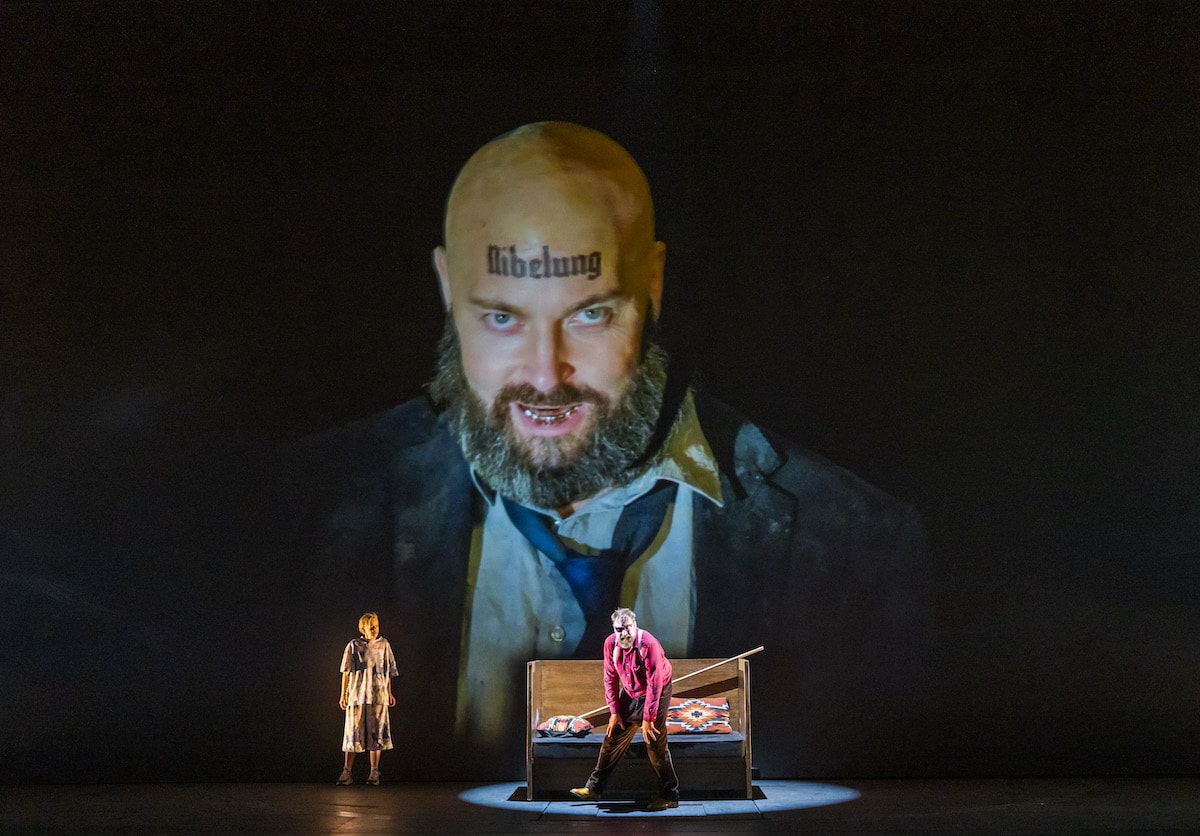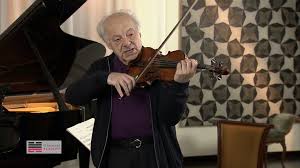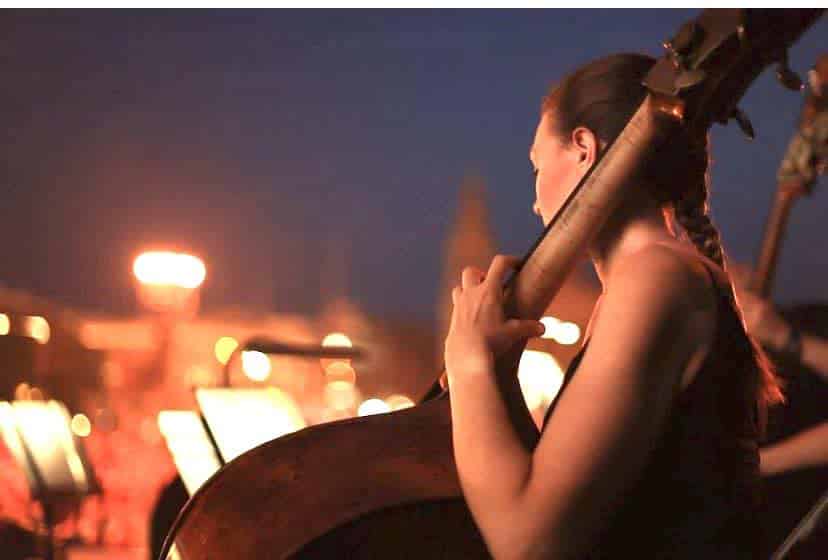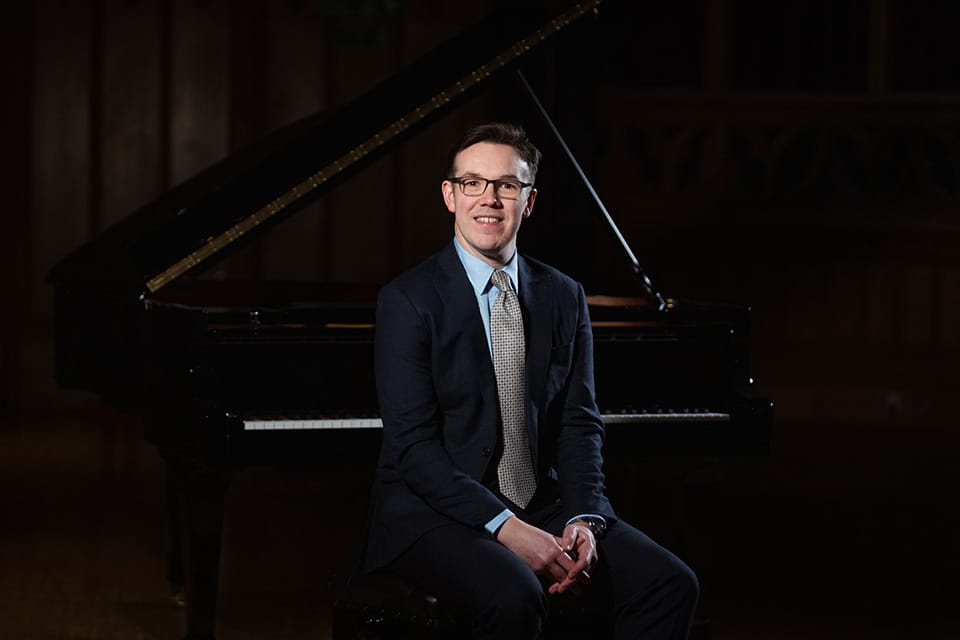Alastair Macaulay on the Met’s next Ring: Much is missing
Alastair MacaulayAlastair Macaulay attended the opening night of Richard Jones’s The Valkyries at English National Opera, heading soon to the Met. Here’s his exclusive review for Slippedisc.com:
Richard Jones’s new production of Wagner’s “The Valkyrie” deliberately strips this music drama of grandiosity or nobility, while maximizing elements of cartoon comedy. Sieglinde (Emma Bell) wears jeans. Her husband Hunding undoes his trousers to rape her (apparently a regular occurrence) before her knockout drug lays him flat. Brünnhilde (Rachel Nicholls) wears patterned culotte pyjamas. Her father Wotan (Matthew Rose) wears a red anorak; Brünnhilde’s eight Valkyrie sisters wear green anoraks ones. And the Valhalla in which Wotan lives with Brünnhilde and his wife Fricka is a chalet. Wotan has some human-sized Disney-like ravens who move the scenery now and then. The Valkyries have two-legged human-size horses. And there’s a storm imp who dances gleefully on the spot during the storm music.
This production received its premiere with English National Opera on Friday night; five further performances follow until December 10. Much of what happens onstage is traditional enough in observing Wagner’s stage directions. A tree growing in the middle of Hunding’s kitchen, with a sword in it. Brünnhilde puts a breastplate on over her jimjams; she, Hunding, and Wotan carry spears.
More unusually for a modern production – refreshingly – Jones sometimes has his singers simply stand still as they look at each other across the stage space just as Wagner asked. The orchestral music tells us everything about what’s going on inside them. We start to feel the instinctive physical longing as Siegmund (Nicky Spence) and Sieglinde gaze at each other.
When Brünnhilde rushes across the stage to embrace her father Wotan after their long argument, the emotion is intense. Indeed, the fact that the king of the gods is wearing an anorak makes the emotion all the more immediate. During Wotan’s long monologue, his dark counterpart, Alberich, becomes visible here, a huge malign figure but visually enough like Wotan to acquire nightmare force.
The first night had problems. Spence sang – extremely well – despite a heavy cold; Susan Bickley acted the role of Fricka but, thanks also to a cold, silently, while Claire Barnett Jones sang the role from a box beside the stage. Jones had planned some flame effects for the conclusion of Act Three, but these were cancelled, due to Wesrminster City Council’s safety precautions. (It’s to be hoped that later performances provide at least some element of changed light in response to Wagner’s music here.)
The production is carried by its men. Martyn Brabbins conducted with a strong, expansive lyrical current throughout. There are moments when the music would profit from a faster pressure; but this is eloquent playing from a committed orchestra.
Rose sings Wotan like no singer I’ve heard before – my “Valkyrie” experience goes back to the 1970s – with a glowingly bel canto command of glowing vocal tone and keenly communicative diction. In the great long monologue of Act Two, his thought is alive in rhythm (a marvellous propulsive grasp of Wagner’s anapaests), in words, and in changing vocal colour. Nothing is forced; his godly authority is achieved by intelligence, not by overblown weight. And never, even on records, have I heard anyone sing the final two phrases (“Who fears the point of my spear, He’ll never pass through the flames”) with such wonderfully taut, bright, architecture. The topmost note – “spear” (“Speer”) – effortlessly attacked and gleamingly sustained, was the evening’s single most glorious vocal sound.
It’s to be hoped Rose will improve in two ways. He has a bad habit of anticipating the beat. (He stopped doing this when he was in the role’s final paragraphs.) And he often enters important notes by leaning into them without vibrato, before allowing his vocal tone to relax; but, since his vibrato is a light unobtrusive quiver and since he never uses it as a way to scoop up into the eventual note, this mannerism may not prove dangerous. Already he is one of the important and most singular Wotans of our day.
Spence – another with good diction and handsomely firm vocal lines – establishes the tragic character of the outsider Siegmund by his dark chest tones (Gunther Treptow, one of the role’s finest interpreters on record, came to mind) and by his uncouth, loose-haired, unkempt-beard appearance. I’d say he’s an embodiment of virile pathos, but he’s uneven physically. Though he has a good stage face, its expressions stay TV-scaled, and, though he stands well, his way of running is the opposite of heroic. Vocally, he’s most moving, catching both the character’s psychological desolation and the love that transforms his existence.
While I enjoyed both Susan Bickley’s silent acting and Claire Barnett Jones’s singing, this split-focus effect perforce diminished drama. Emma Bell’s loose vibrato and execrable diction do no favours to Sieglinde. On the few occasions her words are audible, she sounds as if English were her fourth language. More often, the distance between her words and those written on the surtitles is a cause for embarrassed amazement (how did this come to sound like that?) Brindley Sherratt brings dangerous, imposing, vocal heft to Hunding. (reminiscent of Clifford Grant, who sang this role in this company’s classic bygone performances).
Rachel Nicholls, playing the title role with youthful enthusiasm, only gradually settles into vocal form. But none of this opera’s great emotions becomes more powerful than the conflicted love between this daughter and her father. Jones makes their affection begins playfully: Brünnhilde rides on her father’s back like a little girl playing gee-gee. When she observes the love between Siegmund and Sieglinde, she nestles up to them as if she wants a part of it. Finally, as she finds words to explain her great act of defiance against the father she so adores, she comes of age.
The new singing translation, by John Deathridge, has many wonderfully eloquent passages (“As I reigned, I still needed rapture”; “Shy, astounded, I stood in shame”) and some awkward patches of translationese. Much is missing from this production -but the thrilling grip of Wagner’s thought about many layers of existence is never in question.
press photo: ENO/Tristram Kenton






Gave up reading after the first three lines.
The convention of producing the Ring as a mockery is puerile.
Perfect.
I think critics should learn how to mock these stupid directors on their reviews.
They cannot take it.
But an excellent production requires real talent. So much easier to stage a “controversial” but meaningless production, kitted out by B&Q and Primark, with the virtual certainty that trendy critics will give it an easy ride.
I hope Fafner tears it to shreds.
The first sentence sys all you need to know.
The staging sounds about as bad as I had feared.
Deathridge is a renowned Wagner scholar, but I prefer Porter’s “Only the man who braves my spear point, shall pass through this sea of flames” to “Who fears the point of my spear, He’ll never pass through the flames”
Apologies – stupid typo. ‘…sea of flame’, not ‘flames’. Better still.
Ah, Andrew Porter. I lived for his reviews and the music he elucidated. Are any critics or music scholars his equal today?
Porter’s translation is a work of art in its own right. Bernard Levin wrote a magnificent hymn to it.
The commission of two new translations for the two ENO cycles post-Goodall smacks of ‘Not Invented Here’ syndrome.
I forget who wrote the abomination used in the Lloyd production, but the reviews I have read of this Valkyrie do not serve as hymns to the Deathridge translation.
At least Deathridge avoids introducing an image (Porter’s “sea of flame”) not present in Wagner’s original text. Porter also inverts Wagner’s “fear” into “brave”. As the next opera in the cycle shows, Wotan still expects Siegfried to fear his spear point.
I suspect that this issue is past its sell-by date now. However three things with the Porter translation.
1. His book of the translation and the Goodall CD (recorded Dec 75) have “can pass” rather than “shall pass”, although for reasons too trivial to relate, I can vouch for “shall pass” having been sung in Aug 79 under Groves. Porter does talk (uncritically) of occasional changes sung during performances.
2. I have just listened to a BBC Goodall live broadcast from Feb 70. Bailey sings “He who [indistict] spear I frighten, can never pass through the flame.” Obviously, much closer to the original German, especially as “frighten” is matched with “fürchtet”. Porter’s notes in the book talk at some length about the farewell, but do not mention this change.
3. Joll with the WNO (early 80s) sings something I cannot quite make out very well at all, but it appears to be a variation of the original, rather than the inverted, text.
Since the recent announcement of this as a co-production with, of all places, the MET I can’t help wondering how much, if any, of it will actually transfer to Lincoln Sq. Clearly none of the singers, but a grunge production does not seem to fit the hallowed halls of the late Mrs Harrington.
I admit to admiring much of Jone’s ROH Ring but not much else, if anything, since and can understand how a house wanting to attract an audience less in years than myself might still find him attractive. But, this is now not an ENO Ring, rather a trial run for a MET Ring, and I doubt that much of what they put on the stage of the Coliseum in the next 4 years will transfer any too easily to New York.
They rejected the Herheim from Berlin but his view seem little different to that of Jones, granted after only this single instalment. But Herheim has seemingly failed with a much starrier cast and I cannot see any of their Brunhilde’s donning the garb of Jone’s concept, let alone straddling Wotan and riding him like a pit pony!. No, this is a Ring for domestic consumption only with all that that connotes, particularly when round the corner Kosky will be producing something that could be even more questionable.
The MET, whatever Gelb might wish, is not in the forefront of Regietheater and certainly not when it is dished up by a fadeing septuagenarian enfant terrible!
Schenk is gone. Ditto Lepage. Will Jones even make the stage and if so how much will be recognisable from whatever ENO have still to show us?
Matthew Rose may make the transfer. He has established a tight relationship with the company.
Remember that this “Valkyrie” at ENO was created as a stand-alone, not part of a complete Ring (which was planned later). So it’s likely that the staging will evolve at ENO, even before it transfers to the Met.
I don’t think Peter Gelb, Yannick Nézet-Séguin, or the Met in general have any desire to emulate Regietheater, and from the reviewer’s description it doesn’t appear that this installment fits in that category.
I was there. ENO’s Artistic Director announced before the performance that Westminster Council had decreed that there would be no magic fire. This strikes me as an abject failure of project management by ENO. If they wanted to create a spectacular on-stage conflagration in a listed building, they should have ascertained MONTHS ago that the Council would be happy with the proposed approach.
Moreover, when the Council said “no”, there was evidently no attempt whatsoever to offer an alternative, e.g. some red lighting. Did someone have a hissy fit? “Well, if I can’t have MY magic fire, then you shan’t have ANY magic fire”. The Artistic Director asked us to use our imagination. If I had I wanted to do that I would have listened to the opera on the radio.
The Met just basically bribes the local fire department. It works.
If fire was used in a wooden building in Bayreuth in 1876, surely some non-combustible material could have been deployed in 2021 London.
I’m so glad that the last Ring I attended was the “Green” Ring in Seattle – about as close to Wagner’s idea as I’ll likely see. The music is immortal, and thankfully modern staging ideas aren’t.
The stupidity of Regietheater is the silver lining, not the cloud.
Interesting and thorough commentary
Convinced me not to go to see this at the Met nomatter who is singing. Thank you!!!
been there, done that in 2004 by Chistopher Alden
https://www.operanews.com/Opera_News_Magazine/2013/10/Departments/Coda_%E2%80%94_The_Performance_I_Can_t_Forget.html
An interesting review, not much, but at least *some* editing is missing. Also, the high point of the phrase may be “Spear” in English, but certainly isn’t “Speer” in the original (it’s the first syllable of “fürchtet).
As I suggested in the earlier thread about this production going to the Met, it will drive audiences from the House and hopefully consume Peter Gelb in a real conflagration the cycle’s end.
ONE STUPID “UPDATE” that spends millions of dollars to no purpose and actually degrades the opera as a whole. GELB STRIKES AGAIN! The actual horror and pathos of this ancestral story which is ever new and eternal does NOT need to be “gussied up” by egocentric maniacal folk. Wagner with all his faults recognized the essential power of this story. LEAVE IT alone! That damn “Machine” was bad enough.
In fact there are seven further performances (two are matinees beginning at 2.30).
https://www.eno.org/whats-on/the-valkyrie/?action=book&type=matinee
And, early on in the review, there is an unnecessary “anoraks” (of the green variety). Not the only typo.
The “topmost note” is “furchtet”, not speer.
Post-Brexit, can this production still be called “Eurotrash”?